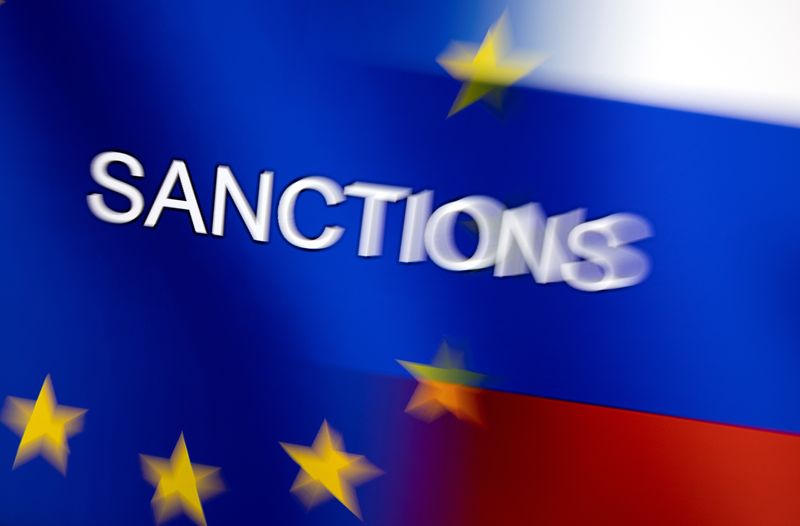By Julia Payne
BRUSSELS (Reuters) -The European Union has adopted a 15th package of sanctions against Russia over its invasion of Ukraine, including tougher measures against Chinese entities and more ships from Moscow’s so-called shadow fleet, the European Commission said in a statement on Monday.
The new package adds 52 Shadow Fleet ships seeking to circumvent Western restrictions on the transport of oil, weapons and grains, bringing the total to 79.
The EU started adding ships this year in response to the increase in the number of ships carrying cargo that is not regulated or insured by conventional Western providers. The list included ships that supplied North Korean ammunition to Russia.
Of the 52 ships sanctioned, 33 were taken for the transport of petroleum products originating in or exported from Russia, bringing the total number of ships sanctioned for the transport of oil to 43.
The new restrictions add 84 new individuals and entities, including seven Chinese individuals and entities.
“Namely, one individual and two entities facilitating the circumvention of EU sanctions, and four entities supplying sensitive drone components and microelectronic components to the Russian military,” the statement said, referring to the Chinese lists.
The Chinese additions will be the first full-fledged sanctions against the country, including a travel ban and asset freezes.
“The move towards full-fledged sanctions is an important signal to the Chinese. We take this very seriously,” said an EU diplomat.
EU sanctions chief David O’Sullivan and Ukrainian officials have identified China as the main route for foreign technology sales to Russia.
CHINESE LISTS
Diplomats said previous Chinese mentions in Russian sanctions packages only concerned export controls, and not an overarching sanction.
In addition, the list includes senior managers in Russia’s energy sector, two senior North Korean officials and 20 Russian companies and entities in India, Iran, Serbia and the United Arab Emirates.
Also added to the list was EU citizen Niels Troost, the businessman he says controls the energy trading firm Paramount Energy and Commodities DMCC.
Paramount DMCC, the EU alleges, “repeatedly traded Russian crude above the oil price ceiling after its introduction.” Troost was also included for its alleged links to Livna Shipping Ltd, which the EU said had traded crude above the price ceiling since its introduction.
A spokesperson for Troost said he will contest the designation.
“This decision has no legal or factual basis. “Neither Mr. Troost nor his companies have ever violated any laws or regulations, and he has had no business ties to Livna Shipping since selling shares in the company in 2018,” the spokesperson said.
Livna Shipping owner Michael Chang said; “Livna Shipping Ltd has no connection whatsoever with Mr Troost, who has had no interest in the management or ownership of the company since he sold his shares in it on October 1, 2018. Livna Shipping Ltd charters ships for its clients, and the company itself does not undertake any trading activities and has never undertaken them.”
Paramount DMCC was sanctioned by Britain in November last year.
EU countries have added financial measures to ease the burden on EU central securities depositories, such as Belgium’s Euroclear, when they manage the immobilized assets of Russia’s central bank.

The Group of Seven (G7) countries agreed this year to use more than $300 billion in frozen funds to support a $50 billion loan to Ukraine to help the country fight Russian forces.
The Commission is preparing a 16th package of sanctions for January, which could include broader measures such as on Russian liquid fuels and export restrictions on subsidiaries of EU companies in third countries, sources told Reuters.


